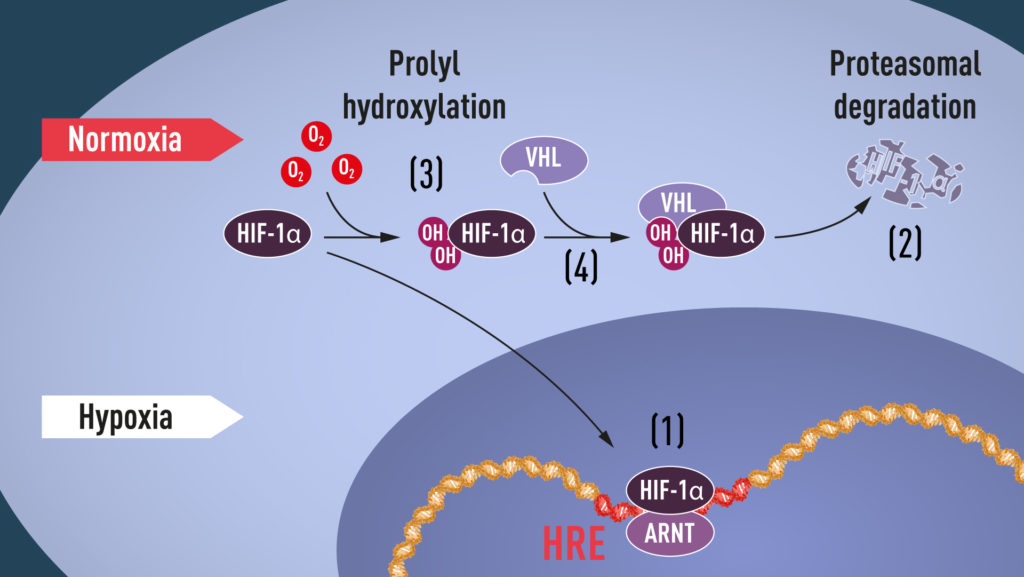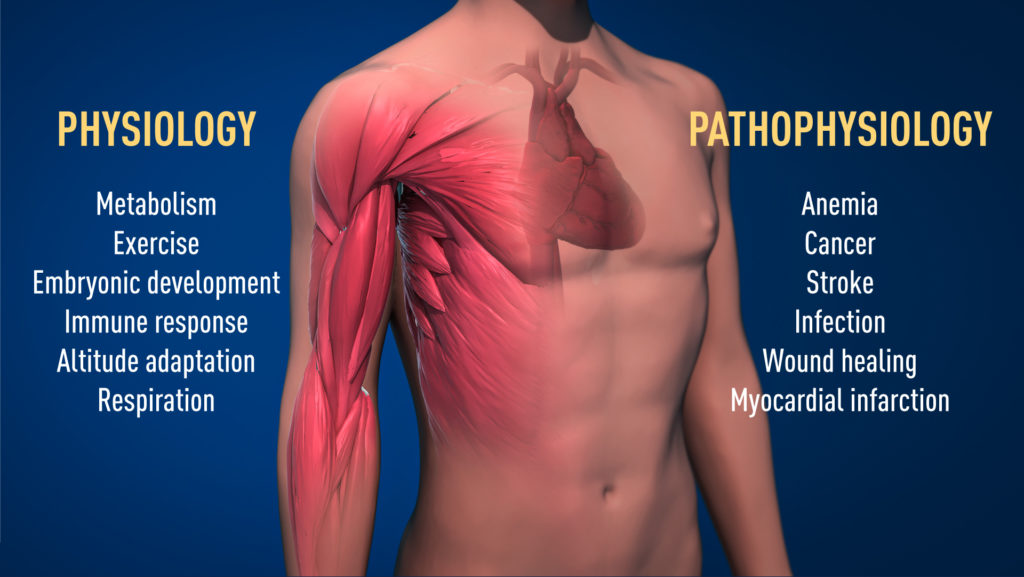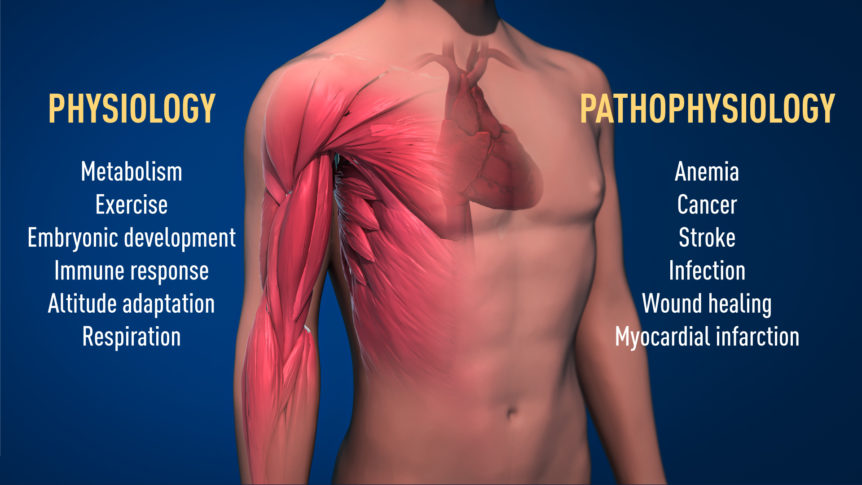I got turned onto this from my interview with Perry Marshall (one of my favorites you can listen to here).
Be warned, science ahead…
Cells can sense and adapt to oxygen availability. Part of this is through the DNA that codes for the hormone erythropoietin (EPO), which in turn leads to the increased production of red blood cells. In short, hypoxia (that is lack of oxygen) switches genes on to code for this protein which increase your blood cells so that you can hold onto more oxygen.
And there are nearby genes that create another protein called hypoxia-inducible factor (HIF). It gets even more detailed which you can reach about here if you’d like to go deeper.
Researchers William G. Kaelin Jr., Sir Peter J. Ratcliffe and Gregg L. Semenza were awarded the 2019 Nobel Prize in Physiology or Medicine for the discovery of all the physiological pathways involved.

Now, here is what this means to you…
Oxygen regulates lot of processes in the body. Our cells can sense how much oxygen is available and make changes according to these levels, including epigenetically. This affects obvious things like exercise and metabolism, but also less obvious things like our immune system.

And cancer…
“Moreover, the oxygen-regulated machinery has an important role in cancer. In tumors, the oxygen-regulated machinery is utilized to stimulate blood vessel formation and reshape metabolism for effective proliferation of cancer cells.”
Otto Warburg, an earlier Nobel Prize winner back in 1931, found that low oxygen was characteristic of cancer cells. In a lecture he stated, “Cancer, above all other diseases, has countless secondary causes. But, even for cancer, there is only one prime cause. Summarized in a few words, the prime cause of cancer is the replacement of the respiration of oxygen in normal body cells by a fermentation of sugar.”
It wasn’t that oxygen itself could kill cancer. They tested that out and didn’t find it to be the case.
But what about signaling the body via increased and decreased oxygen uptake. If hypoxia affects DNA expression, then breathing exercises may protect from cancer.
This is not proven. But it’s a worthy hypothesis. Breathing exercises which induce hypoxia in some cases and hyperoxia in others are going to stimulate cells and DNA to respond. In a variety of ways.
I’ll leave the scientists to work on drugs based on these discoveries as they’re planning to do. (They’re trying to replace exercise with a pill, so why not deep breathing too!)
In the meantime, I’ll continue doing all manner of breathing exercises as ways of training my body to become more antifragile.
What about you?
Upgrade Your Breath is a great place to start.

